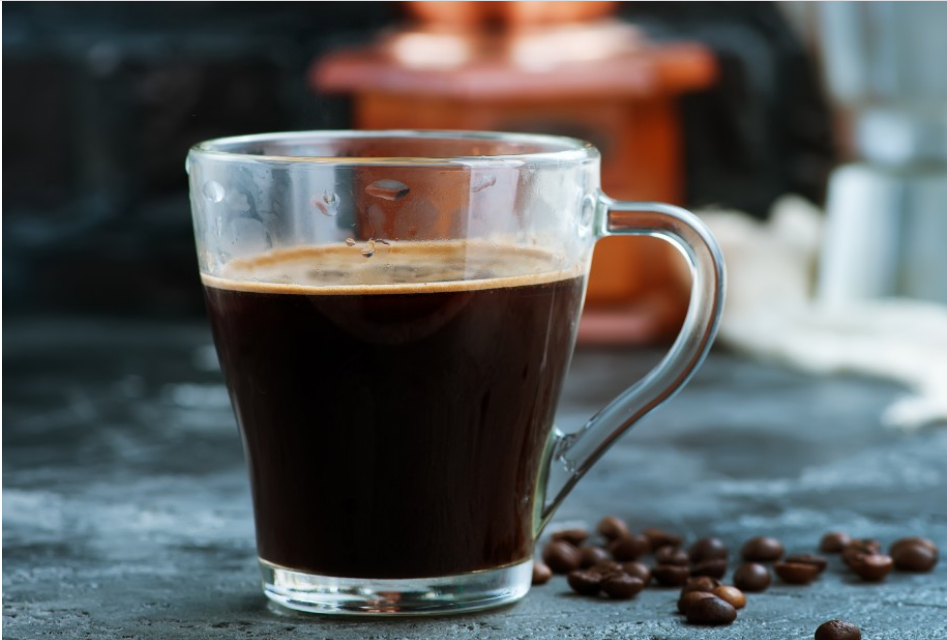Alternatives To Coffee
Posted by Just Fitter on
Coffee Lover? Then you are one of the million coffeeholics around the world who simply can’t start the day without coffee. What do you love most about it? Taste? Or do you feel energized after drinking? Or is it an essential part to start your day? Well, coffee has certainly a lot of effects you love and can’t get away with. But, is it always good for you? What are the alternatives food/drinks to coffee that has similar benefits?
Aside from the energy boost we get when drinking that steaming hot coffee, it is also good to note the other benefits coffee does.
HEALTH BENEFITS OF COFFEE
- Coffee boosts your physical performance.
- Coffee may help you lose weight.
- Coffee helps you burn fat.
- Coffee helps you focus and stay alert.
- Coffee lowers risk of death.
- Coffee reduces risk of cancers.
- Coffee reduces risk of stroke.
- Coffee reduces risk of Parkinson’s disease.
- Coffee protects your body.
- Coffee may lower risk of Type II diabetes.
- Coffee protects your brain.
- Coffee brightens your mood, helps fight depression and lowers risk of suicide.
However, addiction is often an issue in coffee. Some may rely on it as the body’s natural source of energy especially in the morning and even other times of the day too. Like all others, consuming too much of this could have side effects that is bad to our health.
The negative effects of excessive coffee intake on the body include:
- Increase in blood pressure
- Headache
- Nervousness
- Restlessness
- Dizziness
- Heartburn
- Increased anxiety levels
- Muscle tremors (feeling shaky)
- Insomnia (trouble falling asleep or staying asleep)
- Pounding heart or missed beats
- Abnormal heart rhythm
- Frequent trips to the washroom
- Dehydration
- Increased bone loss in postmenopausal women (if diets lack enough intake of calcium)
- Increased cholesterol levels (due to unfiltered, unboiled coffee)
Given those, you could give a try these 9 Alternatives to Coffee (from healthline.com). They give you healthy benefits as much as your regular coffee doze. You might want to explore these and who knows? One of them might suit your taste too.
1. Chicory Coffee
Like coffee beans, chicory root can be roasted, ground and brewed into a delicious hot beverage. It tastes very similar to coffee but is caffeine-free. It is also a rich source of inulin. This soluble fiber may aid in digestion and support a healthy gut by promoting the growth of beneficial bacteria — particularly Bifidobacteria and Lactobacilli. In addition, it can stimulate your gallbladder to produce more bile, which may be beneficial for fat digestion.
Chicory root can be found pre-ground and roasted, so it’s easy to prepare. Simply brew it like regular coffee grounds — in a filter coffee maker, French press or espresso machine.
Use 2 tablespoons of grounds for every 6 ounces (180 ml) of water, or adjust this ratio based on your preferences.
Keep in mind that chicory root may cause digestive symptoms in some people. Although inulin is great for your health, it may have side effects such as bloating and gas.
In addition, you should avoid chicory root if you’re pregnant or breastfeeding since research on its safety under these circumstances is lacking.
2. Matcha Tea
Matcha is a type of green tea made by steaming, drying and grinding the leaves of the Camellia sinensis plant into a fine powder. In contrast to brewable green tea, you consume the whole leaf. For this reason, you’re getting a much more concentrated source of antioxidants — epigallocatechin gallate (EGCG), in particular (4Trusted Source).
Many of the proposed benefits of matcha are attributed to EGCG. For example, observational studies suggest regularly green tea consumption may reduce your risk of high blood pressure.
Green tea has also been associated with reduced weight and body fat, as well as a lower risk of type 2 diabetes. Matcha has a fresh flavor, which some describe as earthy.
Because you consume the whole leaf, matcha is typically higher in caffeine than regular brewed green tea and sometimes higher than coffee. The amount in each serving can vary widely, with a range of 35–250 mg per cup.
3. Golden Milk
Golden milk is a rich, caffeine-free substitute for coffee. This warm beverage incorporates invigorating spices such as ginger, cinnamon, turmeric and black pepper. Other common additions include cardamom, vanilla and honey. Besides giving your drink a beautiful golden color, turmeric may have powerful anti-inflammatory properties due to the potent chemical curcumin. What’s more, black pepper increases your body’s ability to absorb curcumin, as does fat. Therefore, you may want to consider using whole milk versus fat-free for this drink.
4. Lemon Water
Switching up your morning beverage doesn’t have to be complicated. Lemon water is a great way to start your day. It’s calorie- and caffeine-free and provides an ample dose of vitamin C. As an antioxidant, vitamin C plays a role in your immune system and protects your skin from sun damage. It’s essential for creating collagen, a protein that provides the basic structure for your skin, tendons and ligaments.
Just one glass of lemon water — prepared by adding the juice of half a lemon (1 tablespoon or 15 ml) to 1 cup (237 ml) of cold water — provides 10% of your RDI for vitamin C (14).
You can also add other fruits and herbs for a variety of flavors — cucumbers, mint, watermelon and basil are some popular options.
5. Yerba Mate
Yerba mate is a naturally caffeinated herbal tea made from the dried leaves of the South American holly tree, llex paraguriensis. If you’re looking for a coffee substitute but don’t want to part with your morning caffeine, yerba mate is a good choice.
One cup (237 ml) contains roughly 78 mg of caffeine, which is similar to the caffeine content in an average cup of coffee (16Trusted Source).
Yerba mate is also loaded with beneficial plant compounds that act as antioxidants. In fact, some studies suggest it may be higher in antioxidants than green tea.
Additionally, it contains several minerals and vitamins, including riboflavin, thiamine, phosphorus, iron, calcium and vitamins C and E.
It has an acquired taste, which can be described as bitter or smokey. In the traditional method, yerba mate is prepared in a yerba mate gourd and consumed through a metal straw, adding water as you drink it.
To make drinking yerba mate easier, you can also steep the leaves using a tea ball or purchase yerba mate tea bags. In these cases, just steep the leaves in hot water for 3–5 minutes and enjoy.
Despite the purported health benefits of yerba mate, you should drink it in moderation. Studies have linked high, regular intakes of 1–2 liters per day to increased rates of certain types of cancer.
6. Chai Tea
Chai tea is a type of black tea blended with strong herbs and spices.
Though it contains less caffeine (47 mg) than coffee, studies suggest that black tea may still improve mental alertness.
Black and green teas are both made from the Camellia sinensis plant, but black tea undergoes a fermentation process, which changes its chemical makeup. Both types seem to have powerful antioxidant properties.
Although more research is needed, some observational studies have linked drinking black tea with a lower risk of heart disease Besides its potential health benefits, chai tea has a robust flavor and comforting smell.
7. Rooibos Tea
Rooibos or red tea is a caffeine-free beverage that originated in South Africa.
Unlike coffee and other teas, rooibos is low in tannin antioxidants, which can be beneficial but also interfere with the absorption of iron.
Despite a low tannin content, rooibos provides a substantial amount of other antioxidants.
Studies are extremely limited. One test-tube study suggests that rooibos may help protect against heart disease, while another found potential for reducing cancer risk . Rooibos has a longer steep time than most teas and over-steeping does not result in a bitter taste. Instead, rooibos has a slightly sweet, fruity flavor.
To prepare yourself a cup, use a tea filter to steep 1–1.5 teaspoons of loose rooibos for up to 10 minutes. Optionally, you can add lemon and honey to taste.
8. Apple Cider Vinegar
Apple cider vinegar (ACV) is made by fermenting crushed apples using yeast and bacteria.
This process produces a compound called acetic acid, which may have beneficial effects on insulin sensitivity and blood sugar levels, according to some studies.
For example, one study found that when people with insulin resistance drank 20 grams (0.5 tablespoons) of ACV before a meal, their rise in blood sugar levels was reduced by 64%. However, this effect was not seen in people with type 2 diabetes.
Although there is not yet much evidence, ACV may also increase feelings of fullness after meals and assist with modest weight loss.
A basic AVC beverage combines 1–2 tablespoons of raw or unfiltered apple cider vinegar, 1 cup (237 ml) of cold water and optionally 1–2 tablespoons of honey or another preferred sweetener.
Do not drink ACV without diluting it first. ACV contains 4–6% of acetic acid which may burn your mouth and throat. It can also wear away tooth enamel if used regularly, so swishing water before and after drinking ACV is recommended.
9. Kombucha
Kombucha is made by fermenting black tea with bacteria, yeast and sugar. The fermentation process creates a symbiotic colony of bacteria and yeast, commonly referred to as a SCOBY.
After fermentation, kombucha contains probiotics, acetic acid and antioxidants — all of which may have health benefits.
Animal and test-tube studies suggest that kombucha may boost your immune system, improve cholesterol levels and blood glucose levels in people with diabetes. However, the purported health benefits in humans are largely anecdotal.
Making kombucha on your own is not recommended due to a high risk of contamination from harmful pathogens.
However, there are countless varieties available commercially that do not pose the same level of risk.
CONCLUSION:
Up until today, the health effects of coffee is still a controversy. But, many study suggests that the benefits of drinking coffee outweigh its dark side. The key is not to consume too much. Also, some people — especially pregnant women — should definitely avoid or severely limit coffee consumption. People with anxiety issues, high blood pressure or insomnia might also want to reduce their intake for a while to see if it helps. So, if you are one of these people that needs to limit coffee intake or simply want to change your coffee habits, there are several coffee alternatives that may appeal to you too. They have more or less similar benefits to your much loved coffee.
References:
- https://coffee.org/pages/top-reasons-why-people-drink-coffee
- https://www.medicalnewstoday.com/articles/270202#_noHeaderPrefixedContent
- https://blog.warriorcoffee.com/blog/12-health-benefits-and-6-disadvantages-of-coffee-smashing-it
- https://www.medicinenet.com/what_are_the_negative_effects_of_coffee/article.htm
- https://www.healthline.com/nutrition/coffee-alternatives#TOC_TITLE_HDR_10
- https://www.hungryforchange.tv/article/10-reasons-to-quit-coffee-plus-healthy-alternatives
- https://www.healthline.com/nutrition/coffee-good-or-bad#TOC_TITLE_HDR_2
- https://www.healthline.com/nutrition/caffeine-side-effects#TOC_TITLE_HDR_11









